“Hobart rental market in trouble”: Support for short stay crackdown
The Hobart Planning Committee has supported a crackdown on short stay accommodation in Hobart which would prohibit new permits for entire home short stay accommodation in Hobart. LATEST. >>
Tasmania
Don't miss out on the headlines from Tasmania. Followed categories will be added to My News.
A recommendation cracking down on entire homes being used as short stay accommodation has been passed by the Hobart Planning Committee after a lengthy debate on Monday.
Under the recommendation, the Hobart City council would no longer issue new permits for entire home to be used as short stay accommodation in residential zones, but it would not impact existing permit holders.
Those applying for part of their home or granny flats on their properties to be used as short stay accommodation would still be allowed to do so.
There would be no change in commercial or mixed use zones.
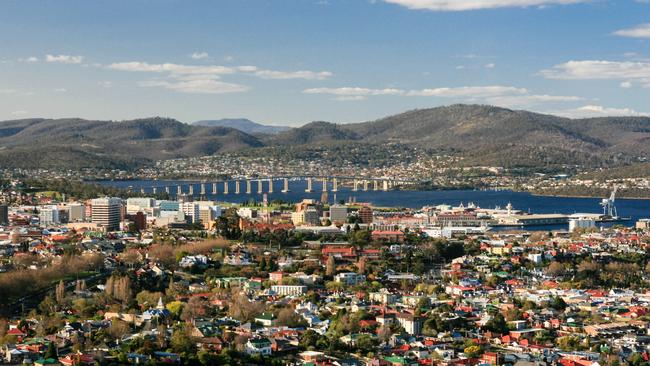
Housing researcher Peter Phibbs, who has been researching the impact of short term rentals in Tasmania, told the planning committee rentals had become increasingly unaffordable.
“Clearly the Hobart rental market’s in trouble,” Mr Phibbs said.
“When you look at the trends over time, you can see the problem basically started in the middle of 2017.”
Mr Phibbs said the number of properties transferred from short term to long term properties during Covid resulted in rents being reduced.
“In Hobart there was probably 110-120 that went from short stay to long term,” Mr Phibbs said.
“When we monitored that, there was a nine per cent decrease in rents during those periods.
“It was a significant trend.”
Ald Simon Behrakis said it wasn’t an appropriate after the council supported a move to investigate increasing rates for entire home short stay accommodation properties in residential areas.
“We are heaping a large number of things on the short stay market,” Mr Behrakis said.
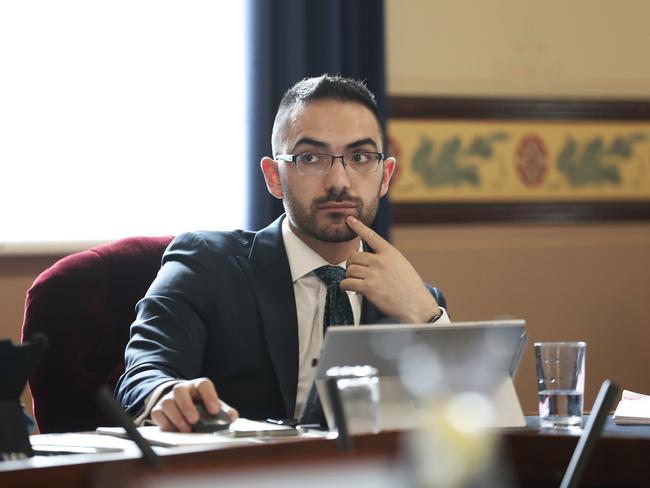
“I don’t think the benefit of this outweighs the detriment to property owners.”
Hobart Lord Mayor Anna Reynolds said renters were running out of options in Hobart.
“This has gotten a little bit out of control in our city,” Ms Reynolds said.
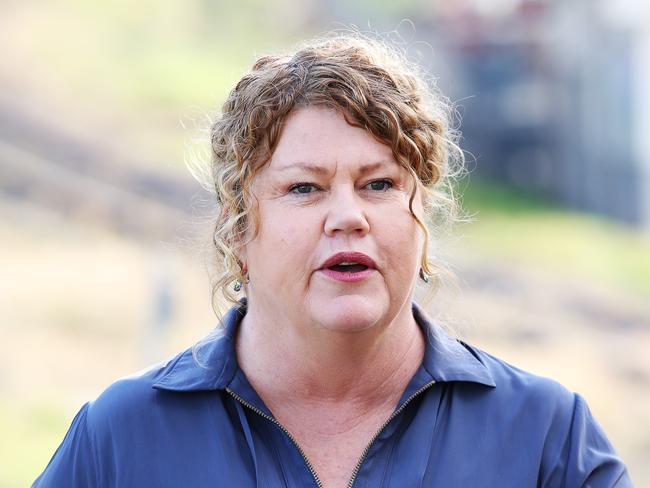
“We have no idea about how big it could get and it’s prudent upon us to pull this lever along with many other levers.”
The recommendation passed 4-2 with the matter to go before the full council next Monday.
if it passes there it will go before the Tasmanian Planning Commission.
“If endorsed by the Council next week, the draft amendment will be put to public consultation as the next step in a process that may take six to nine months,” A City of Hobart spokesperson said.
“Any change will relate only to the potential regulation of new applications for entire-home short-stay accommodation permits, and will not affect existing permit holders.”
EARLIER
The state’s peak housing and homelessness body has applauded recommendations to prohibit new permits for whole-home short stay accommodation in Hobart.
A Hobart City Planning Committee meeting on Monday night will consider a report that recommends restricting short stay visitor accommodation use in entire homes to help combat the housing crisis.
Shelter Tasmania CEO Pattie Chugg said limiting new permits could allow more houses to operate as long term rentals.
“This is a necessary step to rebalance the use of residential accommodation for visitors and for people who live in Hobart,” she said.
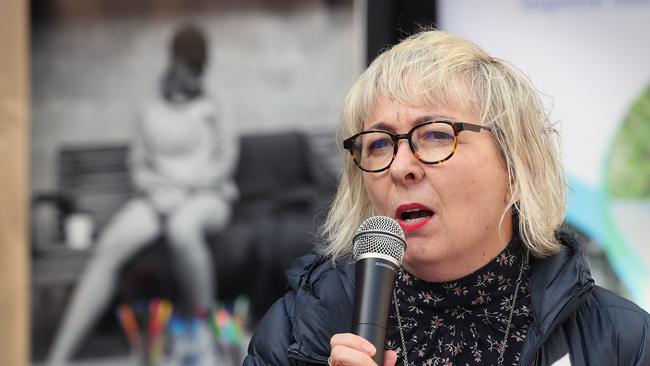
“The private rental market is a vital part of Hobart’s housing system, and renters are currently experiencing an entrenched crisis of affordability and availability.”
Ms Chugg hoped the city could achieve a sustainable vacancy rate between two and 5.3 per cent, but presently that rate in the private rental market is below one per cent.
“The December 2021 Rental Affordability Index shows that Hobart is still the least affordable capital in Australia,” Ms Chugg said.
“Even households on average incomes, including key workers such as nurses, teachers and officers in police and emergency services, are paying over 30 per cent, and up to 80 per cent of their income in rent.
“Managing the impacts of Short Stay accommodation is an important part of solving Tasmania’s housing crisis.”
The Shelter Tas CEO supported the City of Hobart's leadership on housing amid the chronic rental shortage and hoped other councils would follow.
Lord mayor Anna Reynolds will sit on the Hobart City Planning Committee this evening in the absence of committee chair and deputy lord mayor Helen Burnet.
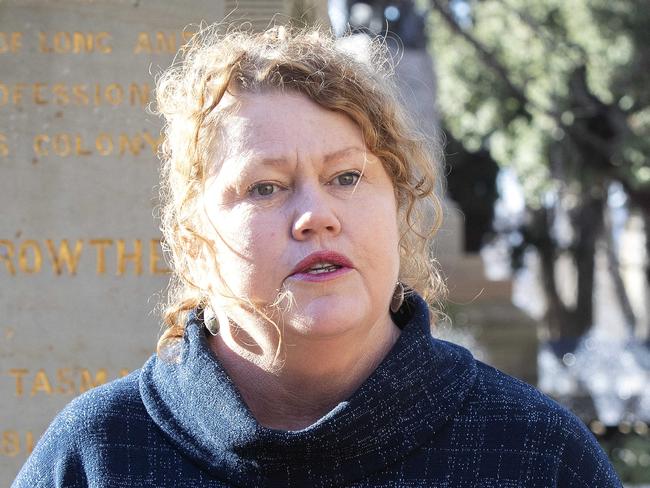
Ms Reynolds hoped councillors attending the meeting would “look at the evidence” and ignore “alarmist rhetoric” from critics of the move, including from short stay platform Airbnb.
“This is really the council doing its job to ensure that we have … we rebalance the local rental market and ensure that there are enough homes for local people to rent long-term in inner-Hobart,” the lord mayor said.
“It will just provide people wanting to rent in Hobart with a fighting chance of finding a home, and it won’t take away anything from anyone who’s currently got a permit.”
Ms Reynolds said the move would be good news for hotels in Hobart, including those built recently in the city.
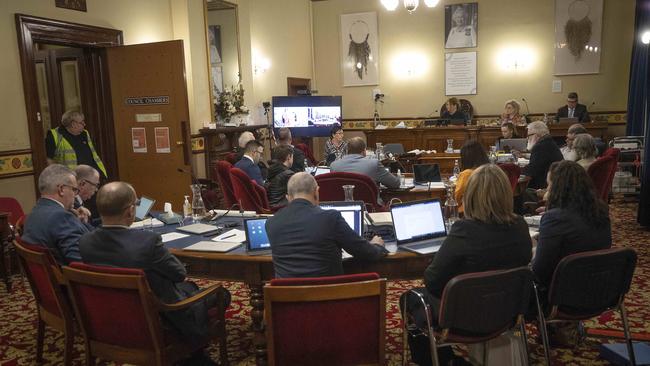
If the city planning committee does approve the recommendations, they will go to a full council meeting next Monday, and beyond that Ms Reynolds said there was still a “complicated process” ahead involving community consultation, planning commission scrutiny and input from the independent planning umpire.
Approving the recommendations would not impact existing permit holders, and people would still be allowed to allocate part of their home or a granny flat on their property to short-stay accommodation.
Some 480 entire home short stay accommodation properties already operate in the Hobart local government area.
Airbnb slams Hobart City Council’s ‘ill-considered’ short stay proposal
Short stay accommodation providers are feeling the heat as the council looks poised to ban any new entire-house offerings, but Airbnb isn’t going down without a fight.
A Hobart City Planning Committee meeting on Monday night will consider a report that recommends restricting short stay visitor accommodation use in whole-homes as a means to combat the housing crisis.
The move to immediately prohibit new permits for entire home short stay accommodation dwellings would cap the number of these properties in Hobart to the present total of about 480.
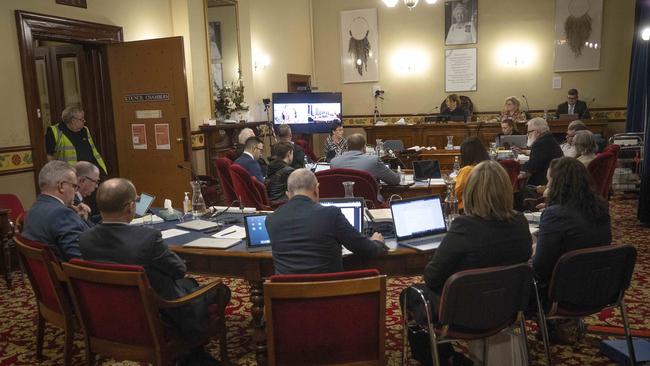
Airbnb Australia and New Zealand country manager Susan Wheeldon said any ban on short stay accommodation would be “ill-considered” and detrimental to the local economy.
She said people visiting the city during major events like Dark Mofo and Taste of Summer would struggle to find places to stay as existing hotels filled up.
“This proposal is being considered at an extremely competitive time, when every destination in Australia is vying for returning tourism dollars and a bigger slice of the tourism pie in a
once-in-a-generation travel comeback,” she said.
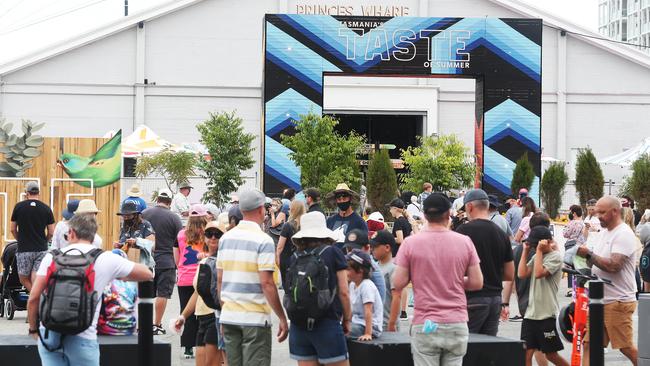
“If introduced, such rules will place Hobart and Tasmania on a vastly unequal footing, and will ultimately hurt guests, local businesses and communities across the city and state by
reducing choice, availability, and affordability of accommodation.”
Ms Wheeldon acknowledged the issue of housing availability and affordability, but said several factors like population trends, supply rates and borrowing costs were also at play.
“It is unfair to single out our host community and blame them for what is ultimately a complex public policy issue,” she said.
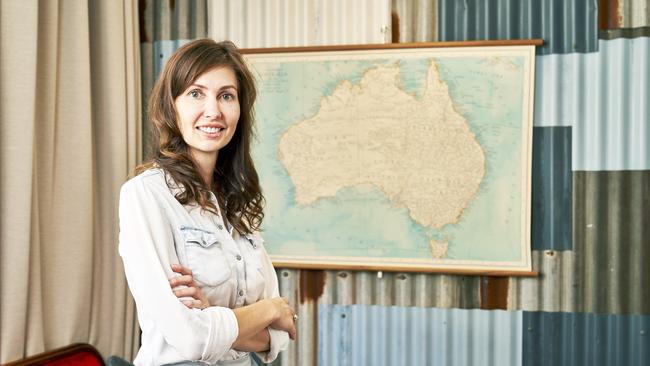
Ms Wheeldon said if the recommendations were approved, Hobartians travelling abroad would not be able to list their homes on short-stay platforms like Airbnb.
The Mercury published comments from deputy lord mayor Helen Burnet on March 14 saying the number of whole house short stays was “going up all the time”.
“That is a significant amount of our residential properties going to short stay accommodation,” she said.
If the committee passes the recommendation on Monday evening, the motion would go to a full council meeting on March 28.
If council carries the motion, newcomers to platforms like Airbnb could let out granny flats or parts of their home for short stay visitors, but entire houses would be off the table.
It comes less than a week after the Hobart City Council moved to launch a report investigating potential higher rates for short stay accommodation property owners.
Should Airbnb owners pay higher rates?
The Hobart City council will consider whether different rates should be applied to properties listed as whole house visitor accommodation, which are currently having their rates calculated as a residential property and for vacant land zoned as residential.
The motion is being moved by deputy lord mayor Helen Burnet as a way to ease pressure on the housing crisis in Hobart.
“There are close to 500, 480 places which are whole house short stay accommodation, that’s going up all the time,” Ms Burnet said.
“That’s just in our municipality (Hobart).
“That is a significant amount of our residential properties going to short stay accommodation.”
If the motion passes, a report will be prepared to determine how the differential rates will be calculated.
“A rate for short stay visitor accommodation isn’t actually available,” Ms Burnet said.
“If you’re running a commercial operation in a residential areas, what is the benefit really?
“This report would look at that.”
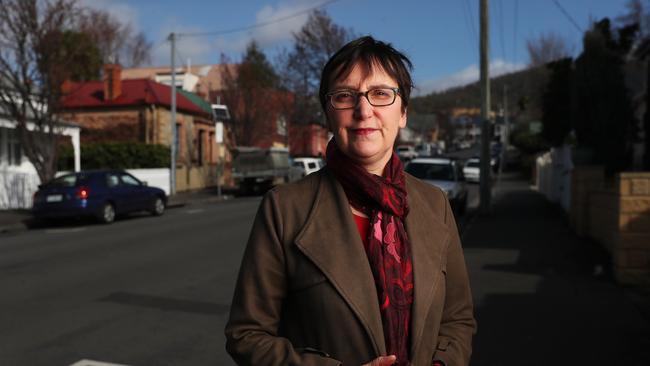
Ms Burnet said while it would be new territory for the council, the idea was something she’d seen successfully implemented in other cities.
“I think councils, state government, federal governments all have a role in this,” Ms Burnet said.
“But there are people with vested interests who won’t want to be told what to do.”
Ms Burnet said there were several vacant blocks in Hobart which could be better used.
“There’s a number of vacant blocks which haven’t been built on in residential areas, sometimes developers might sit on that for a long time,” Ms Burnet said.
“It discourages people from sitting on that land doing nothing, if they attract a higher rate.
“It’s not unheard of, it is actually a good lever to stimulate good use of land.”
Ms Burnet said her motion also involved developing an incentive.
“The other thing the motion sets to do is look at other incentives to stimulate the building of houses and homes, to look at ways you might provide a rebate,” Ms Burnet said.
“In Adelaide, if you’re building a home, if you’re going to move in as your primary place of residence once it’s built, you get a rebate on your rates.
“It’s an incentive to increase the breadth of housing stock.”
The Hobart City council will convene for a general meeting on Tuesday.




